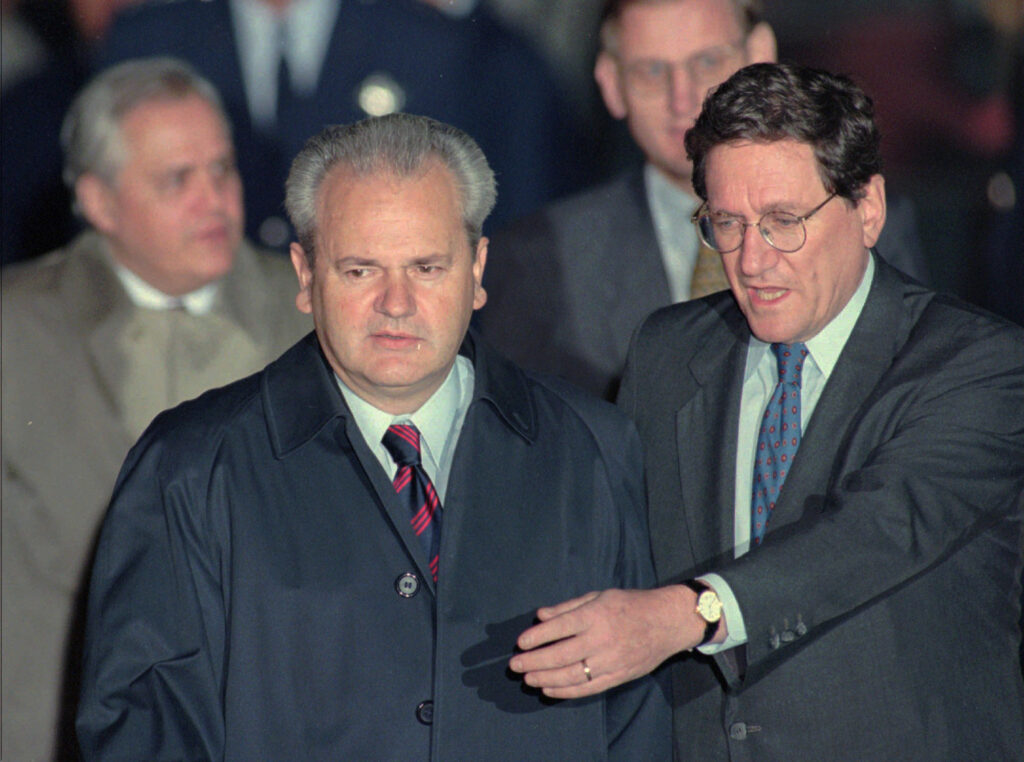The choice of a U.S. military base in America’s heartland disappointed the Balkan leaders, Milošević in particular, who yelled, “I am not a monk! You can’t confine me to a military base!” He also insisted that President Clinton meet with him, but Holbrooke refused, offering that “perhaps” Clinton would come to a signing ceremony. The fact that Milošević agreed to these terms demonstrates how effective the combination of the bombing campaign and the application of strong U.S.-led diplomacy had been.

Ideally we wanted an area we could seal off from the press and all other outsiders, close enough to Washington so that senior Administration officials could visit, yet sufficiently remote,” to keep the warring factions from interacting with the media. The Europeans, used to negotiations in more opulent settings, literally had no idea where Dayton was, and expressed open unhappiness…
Richard Holbrooke, To End a War
At Wright-Patterson, Holbrooke designed a negotiation strategy to attain agreement on three points: ending the bloodshed in Bosnia, the safe withdrawal of the U.N. Protection Force (UNPROFOR) peacekeeping troops, and defining the borders of Bosnian territory. To achieve these goals, he utilized a dual method of what he defined as “lock-up” and “step-by-step” diplomacy. The presidents of the three combatant countries were housed close to one another in a compound—facilitating ease of access in informal discussions. They also had no contact with the press, ensuring that external media speculation would not hinder the negotiation process. Holbrooke built coalitions within the parties and had them agree to small concessions before moving forward to another issue, providing a stepping stone of agreement for each point of contention. The negotiations lasted 21 days, and every day Daytonians stood outside holding candlelight vigils. Dayton City Commissioner Matt Joseph remarked in 2005 at the 10th anniversary commemoration, “People reacted. There was a fire in Bosnia and it was brought to our neighborhood. We took our garden hoses and tried to put it out. We just acted like neighbors. That’s what we do in Dayton. If they’re in trouble, we’re in trouble.”
The final framework was achieved 20 minutes before the talks were scheduled to end, resulting in bringing lasting peace to the region: a unifying governing structure for Bosnia-Herzegovina, a commitment to free democratic elections with international supervision, and a pledge to allow the international community to monitor compliance, and a commitment to “respect human rights and the rights of refugees and displaced persons.” Secretary Christopher remarked, “I trust that one day, people will look back on Dayton and say, ‘This is the place where the fundamental choices were made. This is where the parties chose peace over war, dialogue over destruction, reason over revenge. And this is where each of us accepted the challenge to make those choices meaningful and to make them endure.’”